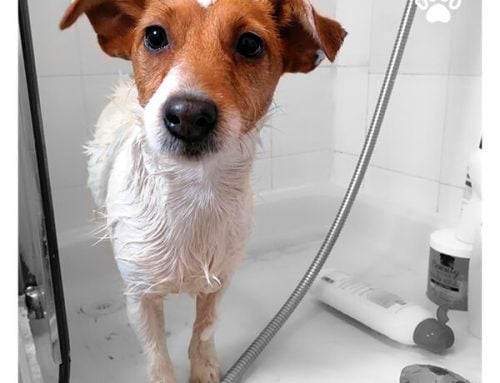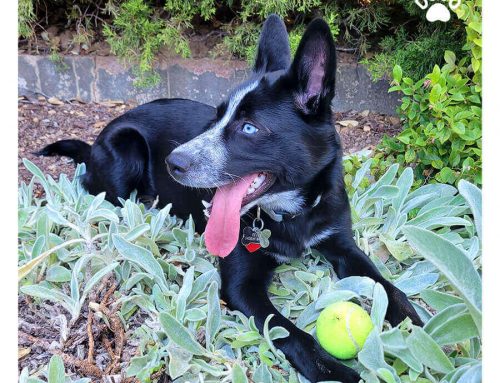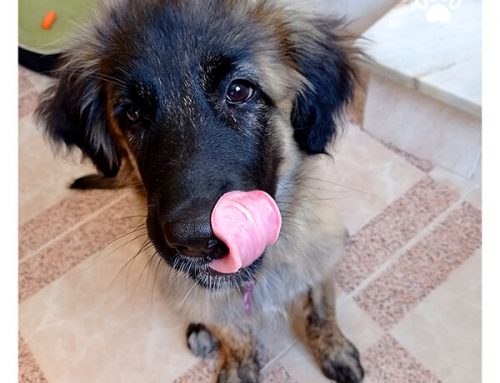Today, in China, we had the first case of a dog who tested mildly positive to the coronavirus (COVID-19). However, we need further research to confirm the case. The World Health Association (WHO) emphasizes that it has not been proven yet that the new variant of the coronavirus can spread from humans to cats or dogs. Should you, as a dog parent, worry? What can you do in this situation?
Coronavirus in dogs
Coronavirus has been first isolated in dogs in 1971. Since then, veterinary doctors frequently diagnose the virus in our canine friends. However, it is a different strain of the virus that is now infecting so many people around the globe. There are two types of viruses that cause symptoms in dogs.
Canine enteric coronavirus
The virus affects the intestinal wall of the digital tract. As a result, the dog is suffering from severe diarrhea, vomiting, and anorexia. The virus is highly contagious. The way to infection is through contact with the feces of infected dogs. Dogs can be infected but show no symptoms for over a week. Some dogs will need support to treat diarrhea. In more severe cases – an intravenous drip to restore the hydration.
To prevent the spread of canine enteric coronavirus, it’s important to clean up after your dog and dispose of their waste properly. This means using a plastic bag to pick up their feces and throwing it away in a trash can. Additionally, if you have multiple dogs, it’s important to keep them separated if one of them is sick. This can help prevent the virus from spreading to other dogs in your household. If your dog does become infected with canine enteric coronavirus, it’s important to provide them with plenty of fluids to prevent dehydration. Your veterinarian may also recommend a special diet to help ease their symptoms.
Canine respiratory coronavirus
Canine respiratory coronavirus (CRCoV) is genetically related to the coronaviruses that causes symptoms in bovines and humans. It is not related to the Canine enteric coronavirus.
CRCoV can cause acute respiratory infection. It is an air-born infection and is transmitted through aerosols of respiratory secretions, through a direct dog-to-dog contact. What is more, the virus can also contaminate surfaces, food and water bowls, and the hands and clothing of people who handle infected dogs.
There is no specific treatment against the virus. Your veterinary doctor will provide supportive, symptomatic care, to alleviate the symptoms.
Prevention
First, if you notice unusual symptoms like diarrhea, runny nose or eyes in your dog, do not go to a dog park or take them to a daycare. Consult a veterinary doctor if the symptoms do not go away within 24 hours. This way you will prevent spreading any viruses or diseases to others.
Additionally, avoid taking your dog to mass gatherings with unknown dogs. A large population of dogs in one place is an increased risk. Additionally, it’s important to wash your hands thoroughly after handling an infected dog or their belongings. This can help prevent the virus from spreading to other dogs or people. If your dog does become infected with CRCoV, your veterinarian may recommend supportive care to help ease their symptoms. This may include medications to reduce fever or coughing, as well as plenty of rest and fluids.
Having said that, it is still important that your dog leads an active and healthy life. A strong immune system is the best prevention against coronaviruses. Provide quality food, physical activity, and mental stimulation to assure that your dog is in the best shape emotionally and physically.
Make sure that your dog has received their deworming-tablets and their vaccination is up to date. Although there is a vaccination against Canine enteric coronavirus, it is not a core-vaccine. If your dog is not in the “risk group”, i.e. shelter, frequent boarding, participating in dog shows, etc. your veterinary doctor is unlikely to administer the vaccination.
Conclusion
To sum up, it is yet unclear whether dogs can get infected by the COVID-19 strain that is now spreading in humans. There are two forms of Coronavirus that cause symptoms in dogs – the Canine Enteric Coronavirus and Canine Respiratory Coronavirus. These viruses are not new and are frequently diagnosed in dogs.
In conclusion, to have a healthy dog from any diseases, make sure that their immune system is strong. Avoid stressful situations, train them and provide good quality food. Vaccinate your dog and deworm as recommended by your veterinary doctor.
Create a Personalized Training Plan for your Dog








